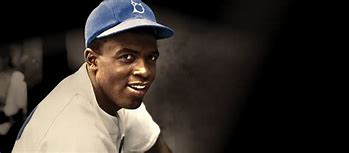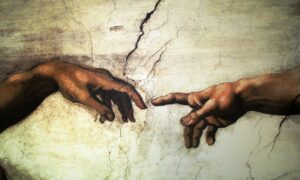There are a lot of “firsts” in the long history of African Americans in this country. And with each one, a new plateau of equality and acceptance was achieved. But it can also be said without exception that each one came at a price for the brave people who fought hard to improve the lives of their people and achieve that great breakthrough in their chosen field.
These principles are certainly true in the arena of sports and especially baseball. Baseball has long been considered the great American pastime. So on April 15th, 1947 when Jackie Robinson walked out onto the field to be the first black to shatter the color barrier in professional baseball in a game between his team, the Brooklyn Dodgers and the Boston Braves, he was making a dramatic statement.
But this was no day of parades and celebration for Robinson. As is the case in so many great events in black history, that was time of tremendous racism, prejudice and discrimination against African Americans. Jackie Robinson was an extraordinary baseball player. In his first year alone he played 151 games, led the league in his base stealing ability and was awarded with the first rookie of the year award ever given. While Jackie played with the Dodgers, they went to the World Series six times and he played in six all star games as well. He was a solid performer and a tremendous benefit to his team for which he won the most valuable player award in 1949 and helped the Dodgers win the World Series in 1955.
As is often the case, it took some brave leadership from supporters outside of the African American community to see to it that prejudice would not keep a brilliant career such as Jackie Robinsons from reaching its true potential. When some of the Brooklyn Dodger players refused to sit next to Jackie Robinson and showed other hostile attitudes towards him because of his race, management stood firm that if they could not become a team with all members of the club, they were welcome to go play baseball elsewhere.
But one of the most emotional and heart warming moments that has become a shining example of the fall of racial bigotry in this country came in a game in Cincinnati Ohio in Robinson’s rookie year. As the fans at the game began to heckle and shout racial slurs at Robinson, one of his fellow Dodger’s, Pee Wee Reese, took a stand to bring this kind of behavior to a stop. His statement that racism would no longer rule in baseball was simple and elegant. As fans shouted their hateful remarks, Reese walked out on the field and put his arm around Jackie Robinson clearly communicating that this man was a teammate and a valued ball player on that team. The taunts ended abruptly and Reese and Robinson went on to do what they came to that game to do, play outstanding baseball.
Jackie himself never made his baseball career about race. He chose to demonstrate dramatically what Dr. Martin Luther King later described when he said that the day must come when we judge a man not by the color of his skin but by the content of his character. Jackie Robinson made his stand for equality by showing that at the heart of his character was a superior baseball player and a valued member of the baseball community.
Even when Robinson spoke of his days pioneering baseball for other African Americans, his words demonstrated that he only wanted the chance to be tested fairly along side all other athletes, no more and no less. His simple statements really summarized so much of what the civil rights movement was all about when he said, “You can hate a man for many reasons, color is not one of them.” And later in his career he stated it again beautifully when he said, “I’m not concerned with your liking or disliking me… all I ask is that you respect me as a human being.”
This emphasis on the individual, on the quality of all men and all Americans and their right to be judged for who they are as people, not subjected to prejudice as African Americans is a perfect summation of the struggle of African Americans everywhere.














More Stories
Rosa Parks
Martin Luther King, Jr.
Harriet Tubman